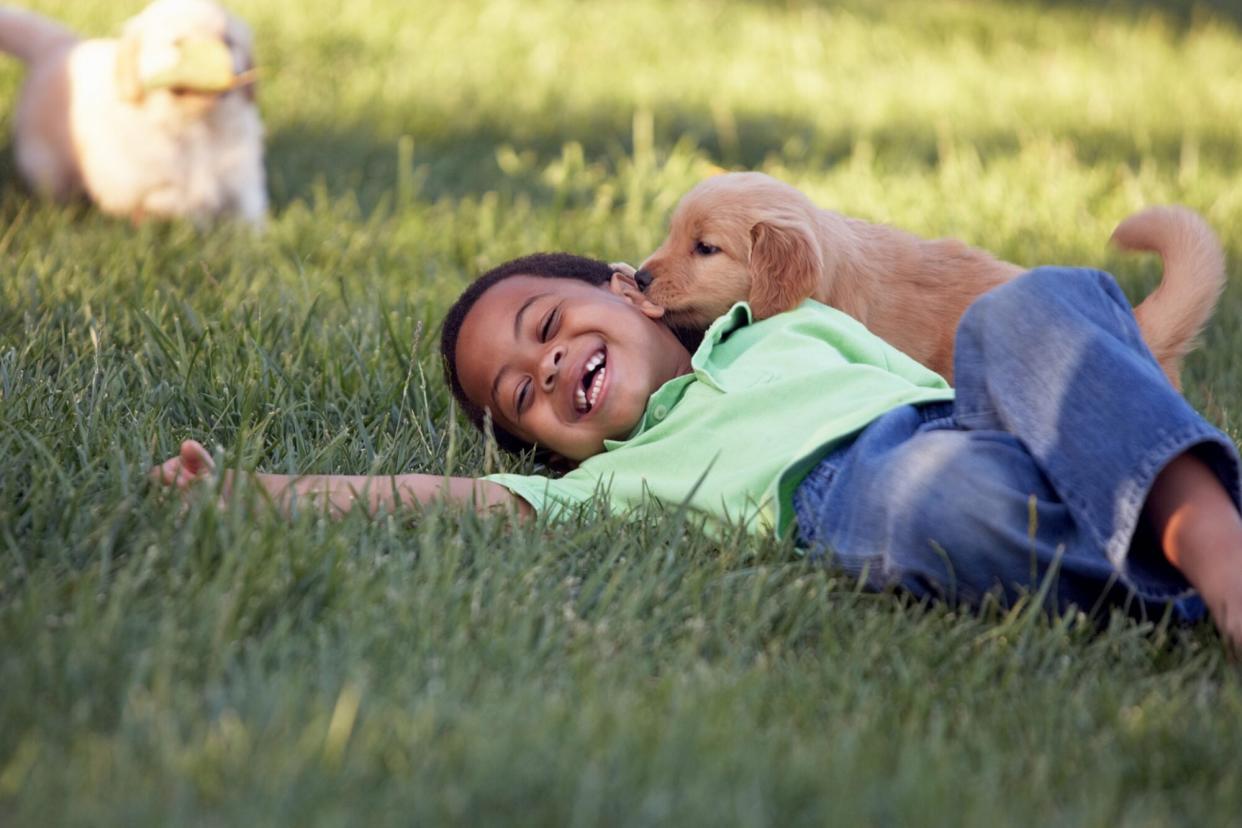A New Study Suggests Puppies Are Born to Connect With Us

Ariel Skelley / Getty
The positive effect of owning a dog is undeniable (and yes, I might be biased and slightly obsessed with Must Love Dogs, but hear me out). Whether it's physically or emotionally, there's evidence that owning a dog contributes to our happiness and health. They've helped us stay sane during the pandemic, and they're even in tune with our kiddos. Moreover, pet therapy with senior adults has been shown to improve cognitive function of residents with mental illness in long-term care. Paw-sitive reasons galore!
But did you know dogs were seemingly born ready to interact with us? We know so much about what our canine companions can do for us, but what goes on inside their heads? According to a study published June 3 in the journal Current Biology, dogs already show social skills and interest in human faces by 8 weeks of age.
RELATED: When Do Puppies Open Their Eyes?
"Puppies will look at and return a person's social gaze and successfully use information given by that person in a social context from a very young age, all prior to any extensive experience with people," Emily Bray, a post-doctoral research associate at the Arizona Canine Cognition Center at the University of Arizona's School of Anthropology, told CNN.
Bray and her team evaluated 375 puppies, all 8 weeks old and either golden retrievers, Labrador retrievers, or golden and Lab mixes. She evaluated them on social-cognitive measures from eye-contact tasks to following hand gestures. For instance, in one part of the study dogs were supposed to follow a reacher's hand gesture to find a treat hidden under a cup. Other parts of the study involved making eye contact between the dog and a researcher. Those are things adult dogs are good at, Bray says, but researchers were drilling down on when that ability starts.
"Most of the puppies chose the right cup 70% of the time," Bray said. Sometimes they even chose the correct cup on the very first trial. The findings seem to indicate that the ability to follow human cues starts even before puppies have been extensively socialized with people.
RELATED: Take a Break and Look at These 15 Cute Puppy Photos
The study extended to test the same dogs as they got older, and it's not surprising that performance of puppy tasks improved as they aged, especially in things like "impulse control and social cues." But, Bray tells CNN that the new research will "give more clues on the traits of a dog that eventually goes on to become a successful working dog." The outcome would make the selection and training process for service and guide dogs, for example, more efficient.
Continued research will be need to be done to identify which canine genes pair with certain traits, but Bray seems up for the job.
"There's lots of work to be done with puppies," she jokes to CNN. "It's a tough job, but someone has to do it."

